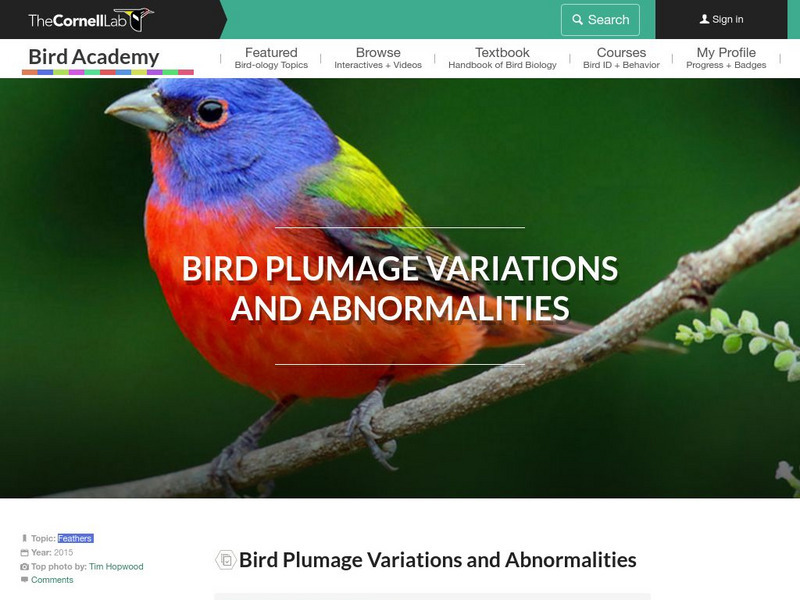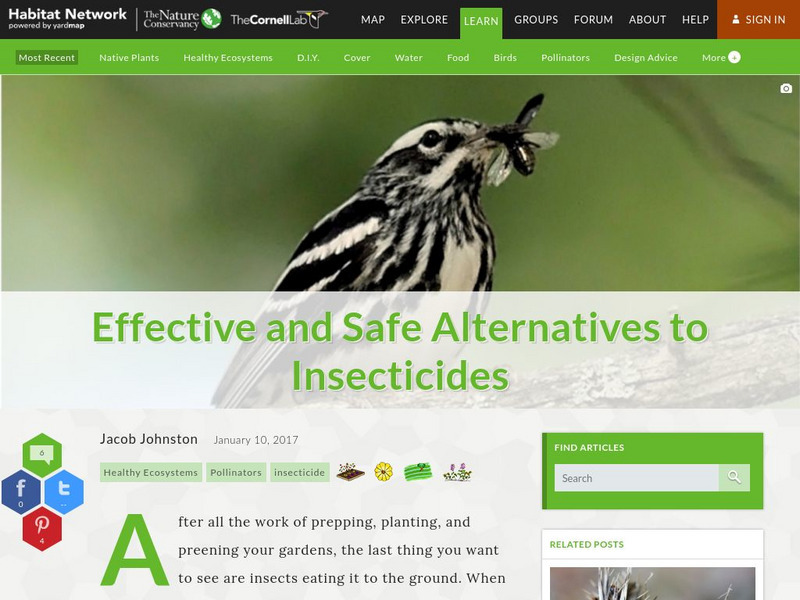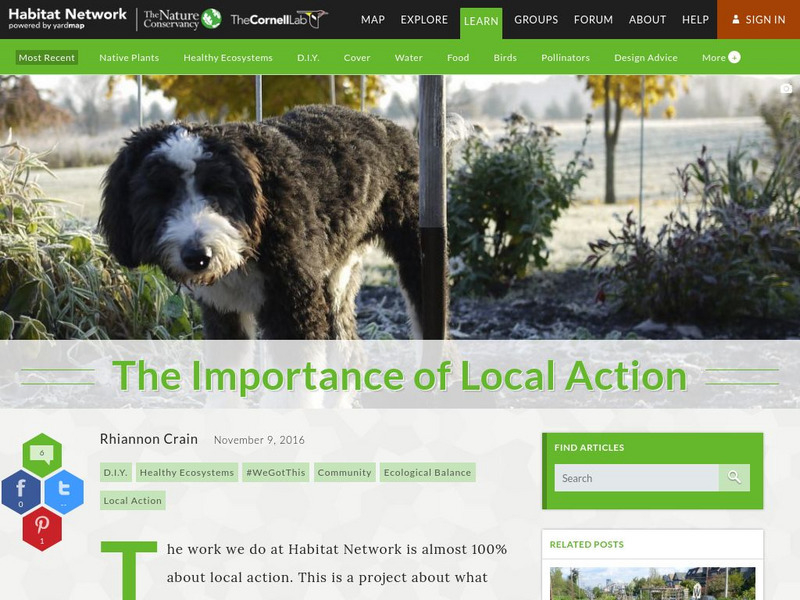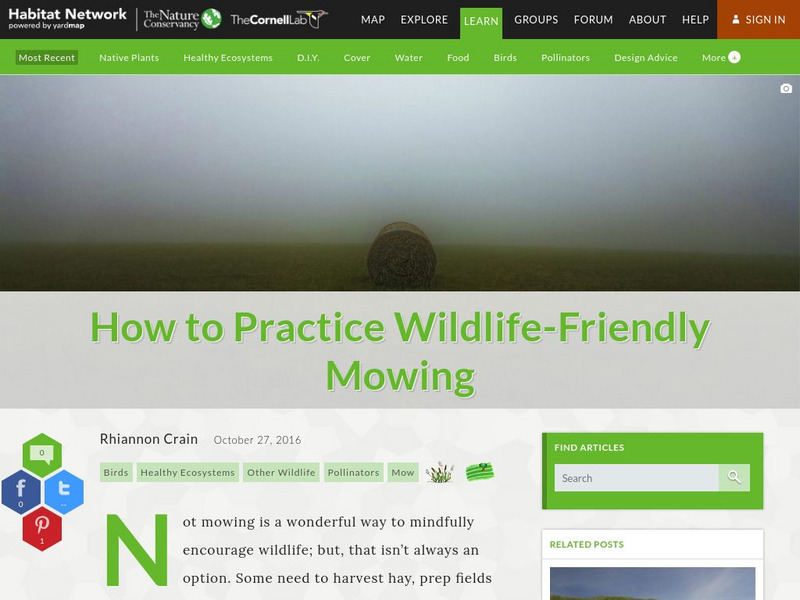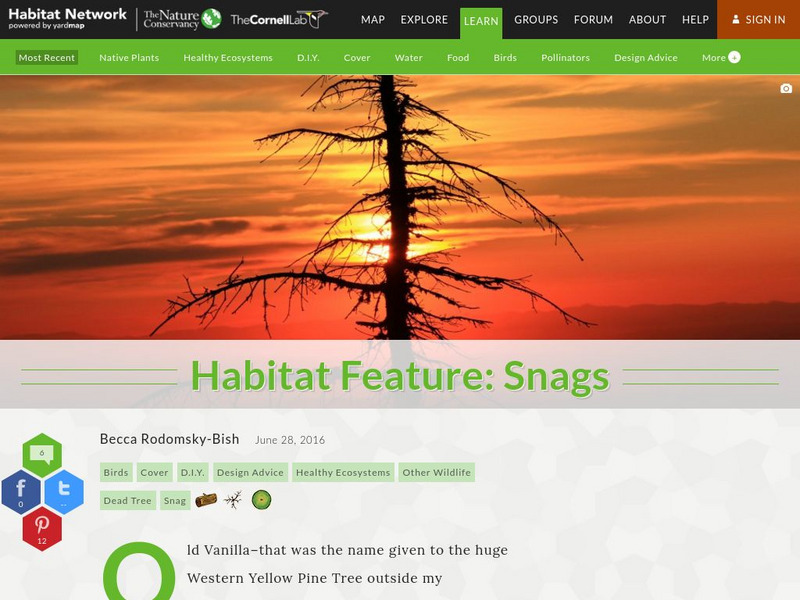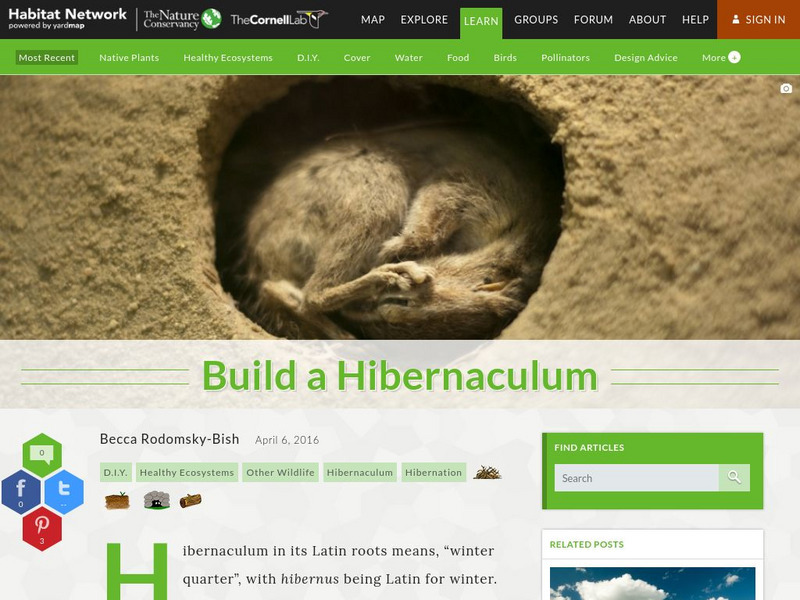Cornell Lab of Ornithology
Cornell Lab of Ornithology: A Calliope Hummingbird Molts Its Gorget Feathers
Striking photos are presented in this colorful site that show the molting stages of the Calliope Hummingbird.
Cornell Lab of Ornithology
Cornell Lab of Ornithology: Bird Feather Plumage Variations
Plumage variations can be based on a number of factors. This brief but informative examines single plumage patterns, seasonal variations, and sexual dimorphism.
Cornell Lab of Ornithology
Cornell Lab of Ornithology: Wall of Birds
See the biodiversity and evolutionary of birds in this mural, titled "From So Simple a Beginning,". Mural features the world of birds and shows bird families including extinct ancestors.
Cornell Lab of Ornithology
Cornell Lab of Ornithology: Dusky Grouse
The dusky grouse is a subspecies of what was previously called the blue grouse. Cool facts, description, range, reproduction, and other names are the topics discussed on this succinct site. Listen to the sounds of this bird species as well.
Cornell Lab of Ornithology
Habitat Network: Effective and Safe Alternatives to Insecticides
The Habitat Network discusses the effective and safe alternatives to common pest treatments.
Cornell Lab of Ornithology
Habitat Network: Habitat Feature: Bat Houses
Find out how providing bat houses can be beneficial to a habaitat.
Cornell Lab of Ornithology
Habitat Network: The Importance of Local Action
The Habitat Network discusses the importance of citizen action projects such as this one.
Cornell Lab of Ornithology
Habitat Network: Must We Mow? Increase Wildlife Value of Working Landscapes
Learn about the ecological benefits of allowing a landscape to grow naturally without mowing.
Cornell Lab of Ornithology
Habitat Network: How to Practice Wildlife Friendly Mowing
When it is time to mow, find out the simple strategies to consider to minimize negative impacts on wildlife.
Cornell Lab of Ornithology
Habitat Network: Increase Canopy Cover by Planting and Maintaining Trees
Find out the ecological benefits of filling a backyard habitat with trees.
Cornell Lab of Ornithology
Habitat Network: Habitat Network Focal City: Philadelphia, Pa
The Habitat Network focuses on the city of Philadelphia. As it grows, it puts tremendous pressure on natural resources, essentially increasing the importance of protecting and restoring them.
Cornell Lab of Ornithology
Habitat Network: Ecological, Practical, Aesthetic Advantages of Wild Shorelines
Habitat Network examines what we know about the ecological functioning of shorelines, and makes recommendations for design, planting, and management of these specialized zones.
Cornell Lab of Ornithology
Habitat Network: Map Your Community
The Habitat network wants to show how mapping is a powerful way to connect you to your community.
Cornell Lab of Ornithology
Habitat Network: Be Healthier: A Goal for Your Site?
Learn about the many small steps people can take to improve one's health and the health of one's community.
Cornell Lab of Ornithology
Habitat Network: Install Edible Gardens
Find out the benefits of planting a garden that provides a sustainable source of food for people.
Cornell Lab of Ornithology
Habitat Network: Habitat Feature: Snags
Find out how dead trees can be beneficial to a backyard habitat.
Cornell Lab of Ornithology
Habitat Network: Take Control of Herbicide Use on Your Property
Here's what you need to know to make an informed choice on the best strategy to tackle backyard weeds.
Cornell Lab of Ornithology
Habitat Network: Discouraging Mosquitoes and Providing Habitat for Wildlife
Find out about some wildlife friendly tips for reducing mosquitoes in yards.
Cornell Lab of Ornithology
Habitat Network: Build a Hibernaculum
Learn about the hibernation habits of different species, and find out how to provide the conditions for a hibernaculum for some species in your backyard.
Cornell Lab of Ornithology
Habitat Network: Investigations Into How to Prevent Deadly Bird Window Strikes
Act a community advocate to help commercial properties embrace best practices for decreasing bird-strikes on their large, heavily-glassed buildings.
Cornell Lab of Ornithology
Habitat Network: Habitat Feature: Making Mud
Find out how mud puddles in a backyard ecosystem make for a welcome habitat for many species.
Cornell Lab of Ornithology
Habitat Network: Find Out How Your Lawn Measures Up
Based on a Calfornia ordinance that limits the size of lawns, Habitat Network offers some alternatives for a species-rich backyard.
Cornell Lab of Ornithology
Habitat Network: Habitat Connectivity in the Yard
Habitat Network address how yards can positively contribute to the overall landscape matrix sharing some ideas about how to see a backyard as a part of the greater whole.
Cornell Lab of Ornithology
Habitat Network: Creating Vernal Pools
Learn the importance of creating vernal pools for habitat diversity.



